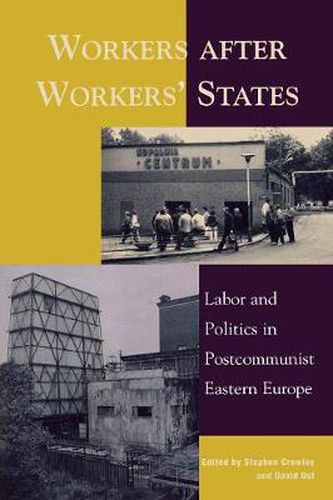Readings Newsletter
Become a Readings Member to make your shopping experience even easier.
Sign in or sign up for free!
You’re not far away from qualifying for FREE standard shipping within Australia
You’ve qualified for FREE standard shipping within Australia
The cart is loading…






After decades as the official ruling class of ostensible workers’ states , labour in Eastern Europe has fallen dramatically. Although the painful consequences of market transformation have hit workers hardest of all, protests have been surprisingly few and ineffective. More than ten years after the start of the transition, trade unions are among the weakest institutions of postcommunist society, unable to influence policymaking or secure material rewards for workers. Why, given unprecedented political freedoms coupled with such adverse economic change, has labour been so quiescent since the fall of communism in Eastern Europe? And what are the political consequences of that weakness for societies trying to build lasting democracies? This book, through the use of comparative case studies, explores the causes, extent, significance and implications of this weakeness. The ten cases - Bulgaria, Croatia, the Czech Republic, Hungary, Poland, Romania, Russia, Serbia, Slovakia and Ukraine -focus on the status of trade unions and the relationship between labour and politics in each country. Comprising a full array of postcommunist societies, these countries represent a wide variation in labour institutions, political experiences and economic outcomes. In their introduction and conclusion the editors consider structural, sociological and ideational explanations for labour decline in the postcommunist era and assess the impact of that weakness on the consolidation of democracy in the region.
$9.00 standard shipping within Australia
FREE standard shipping within Australia for orders over $100.00
Express & International shipping calculated at checkout
After decades as the official ruling class of ostensible workers’ states , labour in Eastern Europe has fallen dramatically. Although the painful consequences of market transformation have hit workers hardest of all, protests have been surprisingly few and ineffective. More than ten years after the start of the transition, trade unions are among the weakest institutions of postcommunist society, unable to influence policymaking or secure material rewards for workers. Why, given unprecedented political freedoms coupled with such adverse economic change, has labour been so quiescent since the fall of communism in Eastern Europe? And what are the political consequences of that weakness for societies trying to build lasting democracies? This book, through the use of comparative case studies, explores the causes, extent, significance and implications of this weakeness. The ten cases - Bulgaria, Croatia, the Czech Republic, Hungary, Poland, Romania, Russia, Serbia, Slovakia and Ukraine -focus on the status of trade unions and the relationship between labour and politics in each country. Comprising a full array of postcommunist societies, these countries represent a wide variation in labour institutions, political experiences and economic outcomes. In their introduction and conclusion the editors consider structural, sociological and ideational explanations for labour decline in the postcommunist era and assess the impact of that weakness on the consolidation of democracy in the region.